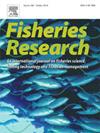探讨垂钓者参与:约束、谈判策略和拥挤反应的作用
IF 2.3
2区 农林科学
Q2 FISHERIES
引用次数: 0
摘要
本研究探讨了垂钓者的特征、感知约束、谈判的使用以及对拥挤的反应在退役、新招募、重新激活和保留垂钓者之间的差异。利用犹他州的钓鱼许可证数据库,我们调查了来自不同钓鱼阶段的垂钓者的分层随机样本,得到了5421份回复。采用探索性因子分析将约束和协商量表条目简化为基本结构,然后采用方差分析和多项逻辑回归来识别钓鱼者分类之间的差异。尽管垂钓者总体上报告了钓鱼方面的轻微限制,但保留垂钓者明显更有可能遇到与钓鱼质量有关的限制,而明显不太可能遇到缺乏兴趣和结构性限制(即资金、交通、渠道、设施、知识和信息)。分析还显示,计划谈判(即计划和留出钓鱼时间,鼓励朋友和家人加入,寻找高质量的钓鱼点)以及带自己的孩子钓鱼,对于更持久的垂钓者分类(重新激活和保留)而言,相对于那些已经失效的垂钓者来说,明显更强。此外,研究结果表明,与其他垂钓者群体相比,拥挤对保留垂钓者的体验产生了负面影响,并更大程度地改变了他们的行为,但拥挤似乎并不是导致垂钓者流失的原因。考虑到保留垂钓者优先考虑钓鱼(即,他们有效地使用计划谈判策略),并且更有可能带别人钓鱼(特别是他们自己的孩子),我们建议管理和研究重点放在培养保留垂钓者在吸引新垂钓者和不太活跃的垂钓者方面的作用。本文章由计算机程序翻译,如有差异,请以英文原文为准。
Exploring angler participation: The role of constraints, negotiation strategies, and crowding responses
This study explores how angler characteristics, perceived constraints, use of negotiations, and responses to crowding differ between lapsed, recruited, re-activated, and retained anglers. Using Utah’s fishing license database, we surveyed a stratified random sample of anglers from various stages of angling participation, which resulted in 5421 responses. Exploratory factor analysis was used to reduce constraint and negotiation scale items into underlying constructs, then ANOVA and multinomial logistic regression were used to identify differences between angler classifications. Although anglers reported mild constraints to angling overall, retained anglers were significantly more likely to experience constraints related to fishing quality and significantly less likely to experience lack of interest and structural constraints (i.e., money, transportation, access, facilities, knowledge, and information). The analysis also revealed planning negotiations (i.e., planning and setting aside time for fishing, encouraging friends and family to join, and searching for high quality fishing spots) as well as taking one’s own children fishing were significantly stronger for more persistent angler classifications (re-activated and retained) relative to those who have lapsed. Also, results show crowding negatively impacts retained anglers’ experience and alters their behavior more than other angler groups, but crowding does not seem to be a reason for lapsing. Given retained anglers prioritize angling (i.e., they effectively use planning negotiation strategies) and are more likely to take others fishing (especially their own children), we suggest management and research focus on ways to cultivate retained anglers’ role in engaging new and less active anglers.
求助全文
通过发布文献求助,成功后即可免费获取论文全文。
去求助
来源期刊

Fisheries Research
农林科学-渔业
CiteScore
4.50
自引率
16.70%
发文量
294
审稿时长
15 weeks
期刊介绍:
This journal provides an international forum for the publication of papers in the areas of fisheries science, fishing technology, fisheries management and relevant socio-economics. The scope covers fisheries in salt, brackish and freshwater systems, and all aspects of associated ecology, environmental aspects of fisheries, and economics. Both theoretical and practical papers are acceptable, including laboratory and field experimental studies relevant to fisheries. Papers on the conservation of exploitable living resources are welcome. Review and Viewpoint articles are also published. As the specified areas inevitably impinge on and interrelate with each other, the approach of the journal is multidisciplinary, and authors are encouraged to emphasise the relevance of their own work to that of other disciplines. The journal is intended for fisheries scientists, biological oceanographers, gear technologists, economists, managers, administrators, policy makers and legislators.
 求助内容:
求助内容: 应助结果提醒方式:
应助结果提醒方式:


